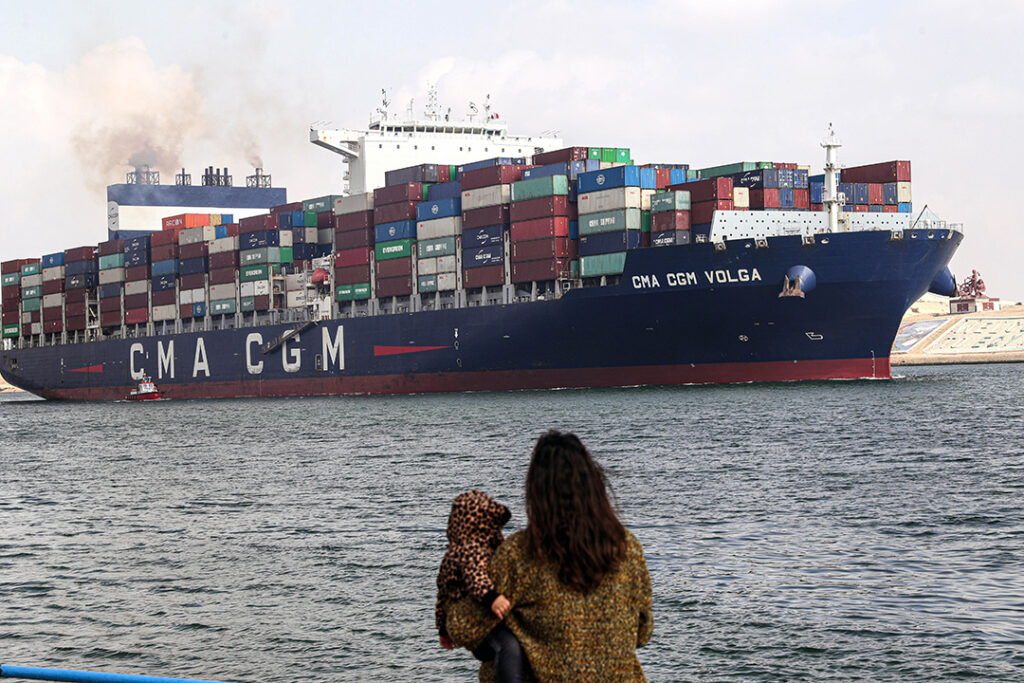In a monumental move in February of 2024, Egypt secured its largest foreign investment ever: a staggering $35 billion influx from the United Arab Emirates (UAE). This landmark investment laid the groundwork for reforms that have subsequently attracted tens of billions of dollars in additional commitments from various international financial institutions and foreign governments. As a result, Egypt’s economy, which was grappling with a prolonged foreign-currency shortage and escalating inflation even prior to the eruption of conflict in the Gaza Strip further exacerbating the situation, now appears to be on more stable ground. However, despite these positive developments, experts are quick to caution that the economic crisis plaguing Egypt is far from resolved.
The UAE’s third-largest sovereign wealth fund, ADQ, injected billions of dollars into real estate ventures along Egypt’s Mediterranean coast, providing Cairo with the necessary foreign reserve cushion to implement the costly economic reforms that paved the way for substantial aid from international lenders. This financial infusion was a game-changer for Egypt’s economic landscape.
In an effort to mitigate volatility and enhance economic stability, Egypt had been artificially propping up the value of its currency, the Egyptian pound, for years. This intervention necessitated tapping into foreign currency reserves to purchase the pound on global markets at inflated prices, resulting in reduced reserves available for essential imports like oil and wheat. In March 2024, Egypt decided to let the pound float and implemented a significant 6 percent hike in interest rates—the largest in history—to comply with the stipulations set by the International Monetary Fund (IMF) for funding. These measures led to an immediate 40 percent depreciation of the pound, marking a record low.
The current economic crisis in Egypt is marked by substantial challenges stemming from President Abdel Fatah al-Sisi’s massive spending on megaprojects, such as a new capital city, which have substantially increased the country’s debt from 70 percent of GDP in 2010 to 96 percent by 2023. Additionally, the Russian invasion of Ukraine has further exacerbated inflation due to Egypt’s heavy reliance on wheat imports from both countries, leading to a significant rise in poverty levels. Egypt’s susceptibility to external shocks, exemplified by the recent events in Gaza, makes it particularly vulnerable due to its dependence on revenue from remittances, tourism, and Suez Canal trade.
Furthermore, the IMF emphasizes the need for additional measures to address the oversized influence of the military in Egypt’s private sector. The military’s extensive array of tax-exempt businesses hinders private sector competition due to its advantages in financing and regulatory exemptions.
Egypt’s recent foreign investments exceed $50 billion, amounting to about 10 percent of the country’s GDP. The IMF’s $8 billion loan package offered to Egypt following the interest rate hike and currency float is indicative of the magnitude of international support towards Egypt. In addition to the IMF, Egypt has secured financing from other multilateral organizations, including the World Bank and a strategic partnership with the European Union encompassing various sectors like trade, energy, and security.
Against the backdrop of regional instability, the United States and its allies are actively supporting efforts to stabilize Egypt’s economy and social fabric amidst rising challenges. The Gaza conflict has further strained Egypt’s economy, impacting key sectors like tourism and Suez Canal operations. Despite the slow progress on IMF-mandated reforms, global lenders have displayed greater leniency toward Egypt due to its critical role in regional diplomacy. However, skepticism lingers regarding the sustainability of these reforms given Egypt’s history of wavering commitments.
The lingering dominance of the military in Egypt’s economy poses a significant impediment to development, as President Sisi faces challenges in reducing the army’s economic influence without undermining his own power. The lack of substantial pressure from the United States and international institutions on this front suggests that Egypt may struggle to break free from economic challenges and advance towards sustained growth.
